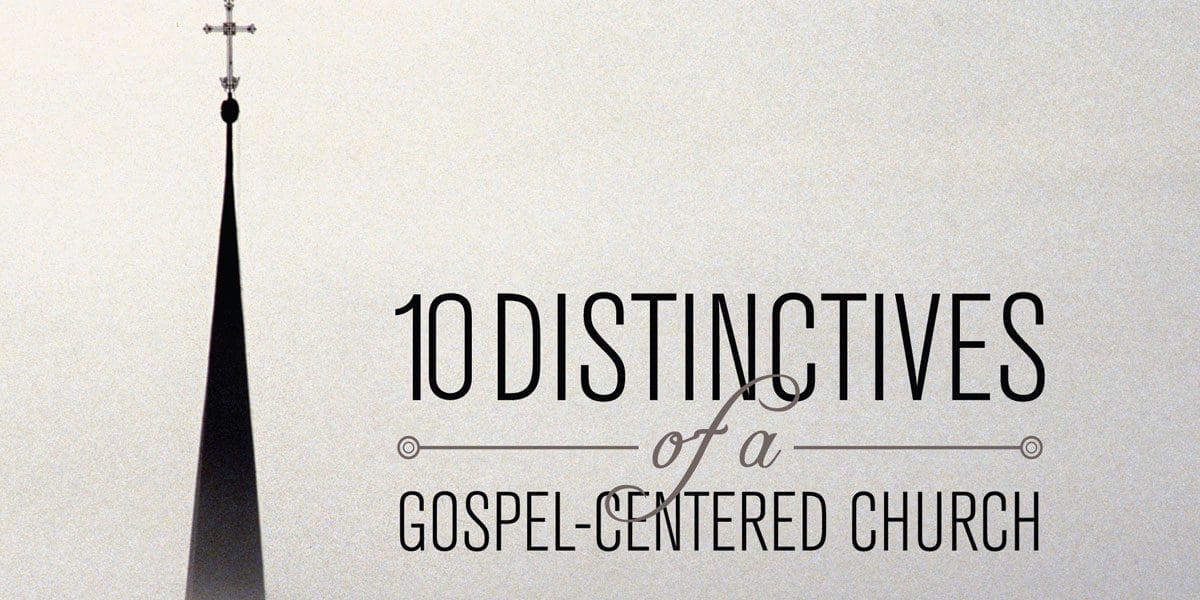The elders who direct the affairs of the church are worthy of double honor… 1 Timothy 5:17 (NIV)
Gifted and godly leaders are a sign of God’s blessing on a church. Leaders who don’t know what they’re doing are a sign of God’s judgment.
Where do I get that? In a time when God’s judgment was on Israel, He spoke through the prophet Isaiah: “I will make boys their officials; mere children will govern them…” (Isaiah 3:4).
Then we read in Israel’s history about an 8-year-old who became king. What does an 8-year-old know about how to rule a nation? A local church also depends in large measure on the character and competence of its leaders.
1 Timothy 5 is about Gospel compassion and Gospel leadership. The first part of this chapter is about how we care for those in the greatest need (v1-16). The second part is about how we care for those with the highest responsibility (v17-25).
I want to make three observations before we look at these verses:
- Of all the messages in this series, this is the hardest one for me to give, for this very obvious reason. You have called me to be a leader alongside others in the church.
It’s difficult to speak about something that you are called to do. So I want you to know that I feel a special need of the Lord’s help to speak faithfully, humbly and helpfully today.
- You need to know that as I have prepared this week, I have been thanking God from the bottom of my heart for the leaders He has given us in this church. I am talking about our pastors, elders and board members.
God has blessed this church throughout its history with wise and godly leadership. But in my opinion, our pastoral and lay leadership team has never been stronger. I hope that the message today will increase your thanksgiving to God for His abundant goodness to us in these days.
- Earlier this year, when I was speaking at a Bible conference in Iowa, I had the opportunity to spend some time with a seminary professor who teaches in another part of the country serving a different denomination.
I asked him what the students who graduated from his seminary were doing. He said “One of two things: Either they want to work with students, or they want to plant their own churches.”
I asked, “Why don’t they want to serve as pastors in the local churches?” He said “They are scared to death because of what they have heard about working with church boards and local congregations.”
I have to tell you that in my experience of talking with young people across the country that this is increasingly common. It is getting harder for churches to find pastors.
The Scripture before us today is of huge importance, because it tells us how pastors, elders and congregation can work together in a way that honors Christ for the advance of the Gospel.
We know the principle that “to those whom much is given, much is expected,” applies to us in this church, and I believe that we have an opportunity to do two things that will serve other churches:
- To encourage young men to serve the Lord in pastoral ministry
- To model what a healthy partnership between pastors, lay leaders and a healthy congregation looks like
This is of supreme importance to those who are interested in the advance of the gospel in our day.
I hope we will catch a vision for this today: Churches desperately need godly leaders and models of healthy leadership. Our great desire is not only to have good leaders but also to produce good leaders who will serve churches well.
These verses paint a portrait of a church in which leaders are honored and effective, protected and accountable, and bear good fruit now and forever.
Leaders: Serving Well and Held in Honor
The elders who direct the affairs of the church well are worthy of double honor, especially those whose work is preaching and teaching. For the Scripture says, “Do not muzzle the ox while it is treading out the grain,” and “The worker deserves his wages.” 1 Timothy 5:17-18
The special calling of pastors and elders
“The elders who direct the affairs of the church…” (v17)
It is the special calling of pastors and elders to give direction to the church. Direction, in a gospel church, does not come from one individual (that would be coercion). Nor does it come from everybody in the congregation (that would be confusion). Direction, in a gospel church, comes from those who’ve been tested and then trusted to serve as leaders (that brings cohesion).
Under the Word of God
“Especially those whose work is in preaching and teaching.” (v17)
A Gospel church is always a church under the Word of God. So the ministry of the Word and the direction of the church belong together. We really are serious about trying to live out what Jesus Christ calls us to do. We want God to shape our lives and our church in a way that reflects what He says to us in His Word.
Respect and support
“Those who direct the affairs of the church well… are worthy of double honor” (v17).
That means, first, that we are to respect those who have been trusted with leadership. “Respect those who work hard among you, who are over you in the Lord” (1 Thessalonians 5:12). Here Paul says those who serve well are worthy of “double honor.”
This honor includes respect. It also includes the support that those who give themselves to full time ministry receive from the church. Paul quotes two Scriptures:
“Do not muzzle the ox while it is treading out the grain…” Deuteronomy 25:4
“The worker deserves his wages…” Luke 10:7
This should make every pastor smile. When Paul thinks of a pastor, the first two things that come to his mind are an ox and a farm laborer. The man who goes into pastoral ministry should expect to work hard, and the church that calls him should pay him for his work.
Lay leaders in the church are often working full-time and then serving on top of that. These leaders should not be working harder than the pastors.
The clear pattern in the Bible
In the Old Testament the priests were supported so that they could give themselves to their work on behalf of the people (2 Chronicles 31:4). Paul received support from the churches, though at times he supported himself as a tentmaker.
Here Paul makes it clear that those who serve the church should receive their living from the church. “Those who preach the Gospel should receive their living from the Gospel” (1 Corinthians 9:14).
Some churches have given such emphasis to the priesthood of all believers that they have lost sight of God’s particular call to some to pastoral ministry.
Is it right to hire a pastor? Is this an honorable thing to do? The largest part of our church budget is given to support our staff. Is this the right thing to do? Absolutely!
Ministry advances through God’s people, under the leadership of those who are called by God and recognized by the church to devote themselves to this work.
Our primary investments are always in people. The Benevolent Fund is devoted to helping people in need. The largest part of our budget is devoted to supporting the pastors we call and the missionaries we send.
A model of wisdom
I want you to know that this church is a model for others in the wisdom with which our lay leaders handle these matters.
Every year a team of our lay people study what pastors are paid in churches across the country, and from that recommend to the Board a range of compensation reflecting the weight of responsibility carried, and the quality of work done.
Perry Brown leads this team and he has done so with such distinction that he is now sought after by other churches as a consultant to guide them in this matter.
On behalf of all the pastors, I want to take this opportunity to thank you for your kindness and generosity, and your faithfulness in giving that enables us to give leadership to ministry. Thank you for your trust, and your encouragement and your support.
We know that many other churches have not been able to sustain their pastors in these days. You have been a model of faithfulness. We are truly grateful and we want you to know that we count it a privilege to serve the Lord with you.
Leaders: Protected and Accountable
Do not entertain an accusation against an elder unless it is brought by two or three witnesses. Those who sin are to be rebuked publicly, so that the others may take warning. (1 Timothy 5:19-20)
There are two points here and they are both important: Good leaders need to be protected from bad people. Good people need to be protected from bad leaders. Both of these things are a part of life in this world.
Protection
Godly leaders will always be under attack from the enemy. Satan is the accuser. He constantly fabricates lies. That’s why we need the belt of truth as the first piece of the armor of God. Calvin says:
“None are more exposed to slanders and insults than godly teachers. They may perform their duties correctly and conscientiously, yet they never avoid a thousand criticisms.” [2]
I think he was having a bad day when he wrote that, but it’s true.
Paul was constantly slandered by false teachers (1 Corinthians 4:3). Our Lord was falsely accused. The gossip about Him was that He was a glutton and a drunkard (Matthew 11:19). Some people even said that He was demon-possessed (Mark 3:22).
The pattern with slander is always the same. Some story or false statement goes around. Then people say “There’s no smoke without a fire.” Satan works havoc in the church through these things, so elders must restrain fabricators of gossip, slander and lies.
Martin Luther said that there are two evils here:
“To promote rumors and untruths… and to be willing to believe the evil and not the good.” [3]
Accountability
Those who sin are to be rebuked publicly, so that the others may take warning. (1 Timothy 5:20)
Paul is talking about a leader, a pastor or elder who harms the church by his sin, and he says the elders have a responsibility to deal with this. Leaders must be held accountable.
I thank God for the wisdom with which this is practiced in our church. Pastors, including myself, are accountable to the Church Board.
We serve under the authority of those who are approved by you, the congregation, to protect us and hold us accountable. The Board can deal with difficulties that may arise in a way that would not be possible for the congregation as a whole, and that is something for which we should all be thankful to God.
Here is a wonderful pattern for pastors lay leaders and congregation working together:
- The congregation appoints the Board and the Board is responsible to the congregation.
- The Board trusts ministry to the pastors, and the pastors submit to the authority of the Board.
- The pastors are called to lead, and the Board holds them accountable for their leadership.
It’s a pattern of health and something we should be deeply thankful for to God.
A lay leader from another church was talking to one of our people recently and he said “We’re looking for a pastor, but we don’t want anyone telling us what to do.” My question is “Who in all the world would go there?” At the risk of offending dog owners, they are looking for a “poodle pastor.”
Why do people say this kind of thing? Sometimes it is because lay leaders want to run things themselves, and they don’t want anyone else interfering “It’s our show.” Sometimes it is because they have been hurt by an authoritarian pastor and they have said “Never again!” If you were bitten by a rottweiler, it stands to reason that you might be drawn to a poodle.
We don’t want poodle pastors, and we don’t want rottweilers either! We want leadership and accountability, trust and submission. These are good gifts from the Lord and I hope you are thankful for them.
Leaders: Bearing Good Fruit Now and Forever
The sins of some men are obvious, reaching the place of judgment ahead of them; the sins of others trail behind them. In the same way, good deeds are obvious, and even those that are not cannot be hidden. (1 Timothy 5:24-25)
We all serve the Lord in the light of the coming judgment of God. God sees all things in the lives of all people—leaders, congregation, elders and pastors. Nothing is hidden from Him.
Some sins are obvious…
…while others are secret
Some people are “obvious sinners.” You can see a pattern of destructive behavior throughout their lives. Other people are “secret sinners.” They appear very pious, but behind what you see, there is a life that’s filled with all kinds of evil.
John Stott calls this “The Iceberg Principle.” Nine-tenths of a person is hidden from view. He says:
Attractive personalities often have hidden weaknesses, whereas unprepossessing people often have hidden strengths. Timothy must learn to discern between… the appearance and the reality. [4]
People are not always what they appear on the surface. That is why we should exercise caution and care in appointing leaders: “Do not be hasty in the laying on of hands” (v22). Don’t be hasty in appointing people to positions of leadership. Get to know people over time, then with confidence you will be able to trust them with responsibility.
There’s great wisdom in that. Beware of acting on first impressions. People may be better or worse than they first appear. Both good and bad qualities surface over time.
Some good deeds are obvious…
…while others are hidden
Some good works are immediately recognized and praised. Others are hidden and known only to God.
But just as God sees and will judge secret evil, He also sees and will reward the hidden good. Williams Barclay calls this “The Impossibility of Ultimate Concealment.” He comments:
There are some whose good deeds are plain for all to see, and who have already won the praise and thanks and honor and congratulations of men. There are others whose good deeds have never been noticed. They have never been appreciated, never thanked, never praised, never valued as they ought to have been. They have always been taken for granted. [5]
If that’s been your experience—you’ve been taken for granted. Remember that God sees what others have missed. Jesus said that even a cup of cold water given in His name will receive its reward (Matthew 10:42).
The judgment of God that should bring fear to those whose sin is secret should also bring comfort to those whose good deeds are hidden from view. If you have not received the honor that is due, if you have not received the protection that should have been given…
Remember the Lord Jesus Christ
When the Son of God who is worshipped by angels came into the world we could not honor Him with a bed in which to be born. Christ extended Himself in ministry often to the point of exhaustion, and yet was so dishonored.
He went about doing good and yet was constantly slandered: “Beelzebub… he is demon-possessed” (Matthew 12:24, Mark 3:22). “He is a drunkard and a glutton…” (Matthew 11:19, Luke 7:34). He received no protection, but was condemned without the testimony of witnesses. This is the world we live in, and the world never changes.
But the world never has the last word. God does. God vindicated our Lord Jesus, and exalted Him to the highest place that at the name of Jesus every knee shall bow (Philippians 2:9-10).
So now, through His death, there is forgiveness of sins—open sins and hidden sins. There is forgiveness of sins through His shed blood. And through His resurrection, there is the power to live a new life of good deeds, that over time, will give evidence that you are a changed person—a new creation.
Christ holds these gifts in His hands and what He accomplished in His death and in His resurrection He offers to you.
[2] Cited in John Stott, The Message of 1 Timothy and Titus, from The Bible Speaks Today series, p.138
[3] Martin Luther
[4] Stott, p. 141
[5] William Barclay, Letters to Timothy, Titus and Philemon, from The Daily Study Bible series, p. 139




